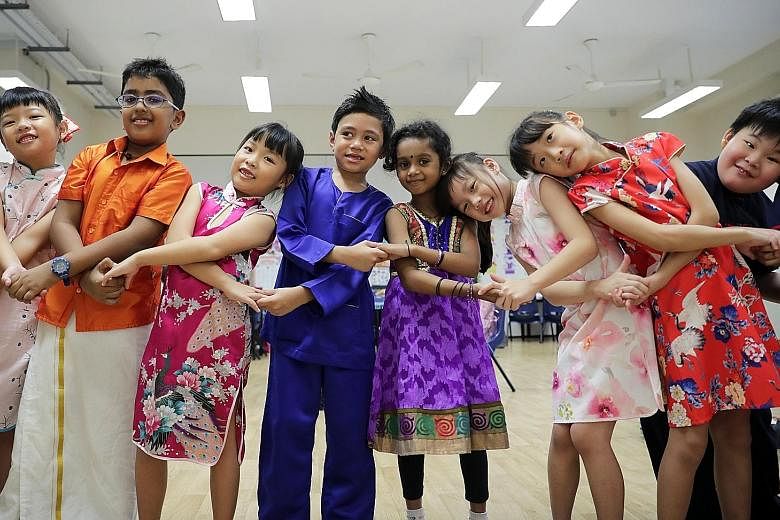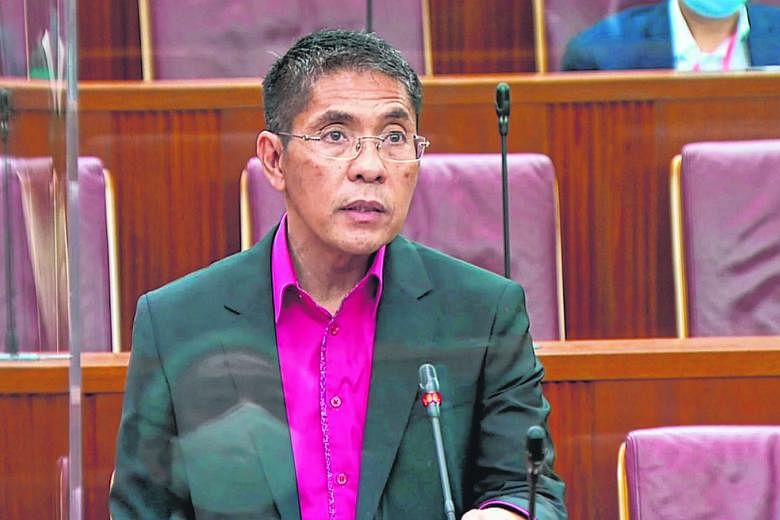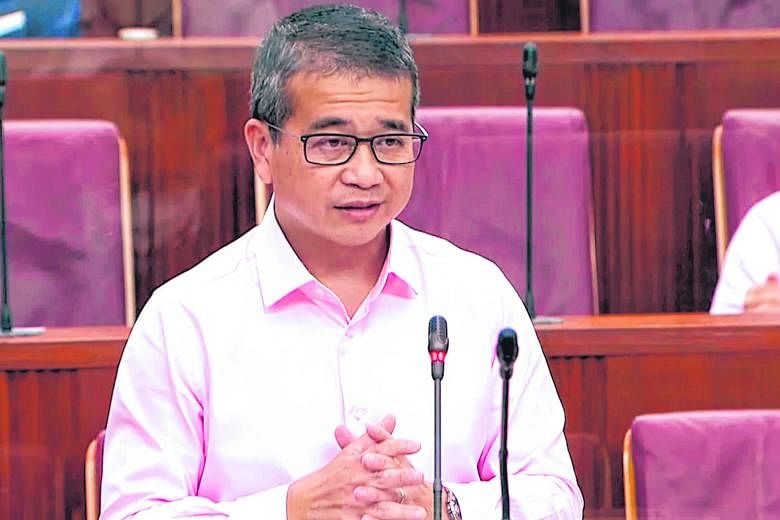The concept of a "race-blind society" that is free of racial prejudice and discrimination in attitudes and practices is an ideal that Singapore wants to work towards.
But it is premature to conclude that Singapore has arrived at such a post-racial state, two ministers - Minister for Culture, Community and Youth Edwin Tong and Minister in the Prime Minister's Office Maliki Osman - said yesterday.
Workers' Party chairman Sylvia Lim (Aljunied GRC) had on Tuesday called for a national exercise to review how Singapore's journey towards becoming a race-blind society can be hastened.
The concept of a "race-blind society" is an aim set out in a report by the Constitutional Commission to review the elected presidency in 2016, she noted.
Ms Lim had also called for an open review of various race-based policies, including the Ethnic Integration Policy (EIP) and race-based self-help groups.
While the self-help groups have done good work, with some extending help to other communities as well, their existence reinforces racial consciousness, she said.
The different sizes of the ethnic groups contributing to these organisations may also affect the amount of resources they have.
In their speeches on Day 4 of the debate on the President's Address, the ministers yesterday stressed that while it is important to work towards a more inclusive society, it is also important to maintain an awareness of and respect for differences between groups.
Mr Tong noted that while Singapore has now become less race conscious and more tolerant of differences, Singaporeans must not think that they have arrived at an ideal "post-racial state", or that no more effort will be needed to bridge different groups.
"Race and religion remain fault lines and are emotive issues.
"The risk of regressing on what we have achieved is always there, and we cannot assume that our progress will be in a straight line," he said.
Singaporeans should also take care not to ignore or underestimate the "severe and sometimes unintended negative consequences that can easily occur with unrestrained comments" on race relations and related issues, added Dr Maliki, who is also Second Minister for Education and Foreign Affairs.
Mr Tong said that there is "absolutely nothing natural or inevitable" about the progress that Singapore has achieved on issues of race and religion over the years, especially with the young perhaps coming closer to the ideal state of unity and harmony than their parents and grandparents.
"If it were an expected or natural progression, it would have occurred elsewhere in the world naturally, including among our neighbours in Asean," he said.
"We got here precisely because we have worked consistently and systematically at it, through policies that touch almost every aspect of our lives," he added, noting how Singaporeans of different races live together, study together and go through national service together as a result of such policies.
Common spaces like public parks, schools, libraries, sports facilities and public housing, where all races interact - whether accidentally or deliberately, through the EIP - promote a more open and shared outlook across communities by creating opportunities for social mixing, added Mr Tong.
Moreover, consciousness of race in Singapore cannot be erased, nor should it be, both ministers noted.
Neither does pledging to remain as "one united people, regardless of race" mean that Singapore should renounce cultural affinities or discourage people of the same community from coming together to support each other and others in the community, said Mr Tong.
To be inclusive, Singaporeans must accept that there are differences across races and approach these differences in a constructive manner, added Dr Maliki.
"These could be differences in cultural traditions and practices, emphasis on priorities and what matters more in life, but also the specific community problems or issues that members of a race group find that they have to grapple with, and require dedicated attention and assistance," he added.
Singaporeans, Dr Maliki said, should also allow for a "positive sense of racial identity to exist and develop", and have in place a comprehensive set of policies and community initiatives, including self-help groups.
This will help address issues in the community as part of a larger ecosystem that provides help to those who need it, and solve problems effectively and with empathy.
Mr Tong agreed with him that ethnic self-help groups still have a role to play.
While they are race-based, they are not race-bound, and have rallied their respective communities to serve the vulnerable across the spectrum of race and ethnicity.
The volunteers in such groups, too, cut across racial boundaries.
Almost a quarter of the volunteers in Malay self-help group Mendaki are not Malay, he pointed out.
Dr Maliki added that there is no inherent contradiction in an individual having a strong racial identity as well as a strong Singaporean one.
He said that is why having in place the CMIO - Chinese, Malay, Indian and Others - framework "does not make us less Singaporean, and doing away with it does not mean we will become more Singaporean".
How race issues are discussed publicly will evolve over time, both ministers added.
Singapore's youth must have as much a voice in this discourse on race as anyone else, added Mr Tong. Such discourse must also take place across generations, he said.
Mr Tong added that inclusiveness is "not about ignoring or just living with differences, or denying that different groups have different and even conflicting agendas".
"It is about accepting that there is always going to be some give and take, and appreciating that everyone is entitled to their positions as long as those positions do not encroach on another group's right to also have a position, albeit a different one, and perhaps even one that you might disagree with," he said.



